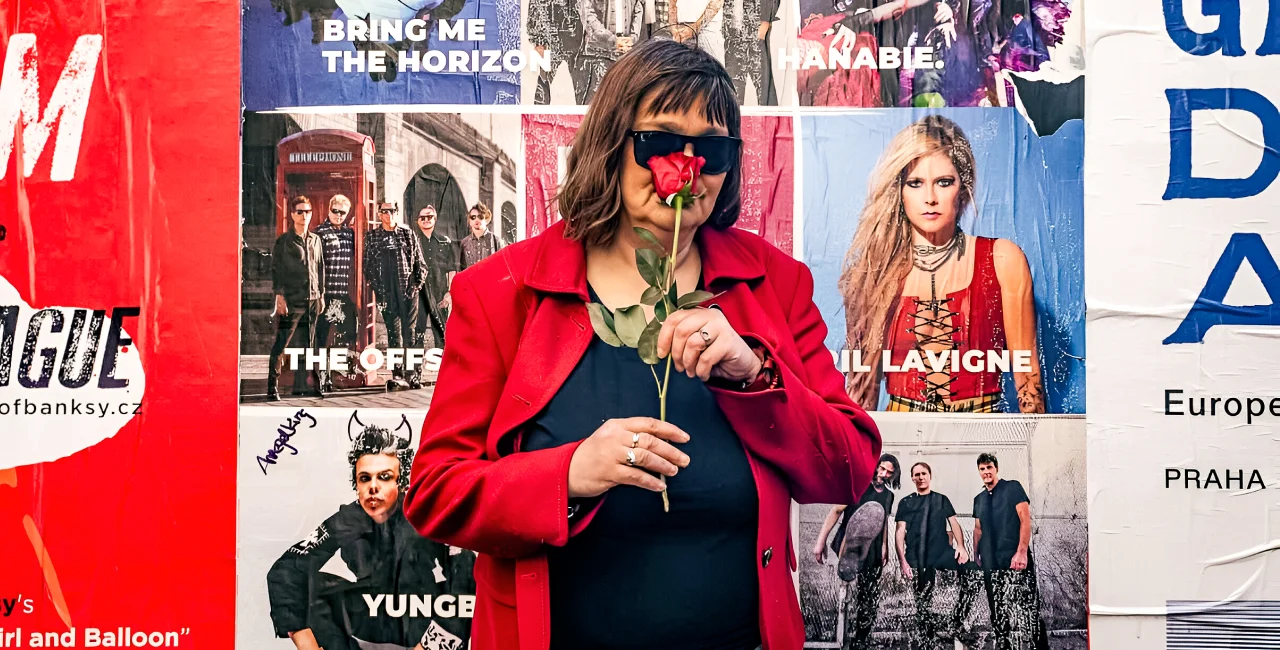“Each girl had their own spot. This one over there was mine, and I had to fight twice for it,” Lada tells us at the start of the tour, which kicks off at Uhelný trh, a small square in the center of Prague and a former prostitution hotspot now bustling with idle locals and unsuspecting tourists.
Lada is one of the roughly half a dozen tour guides employed by Pragulic, a local social enterprise organization founded in 2012 by three students finishing their master’s program in civil sector studies.
Like her peers Mira, Karel, Vaclav, Zuzka, and others, Lada holds her 2-hour-long tour once a week. Pragulic (a play with ‘ulice,’ or ‘street’ in Czech) recently launched its weekly tour with an English interpreter, hoping to attract a broader and more international audience who may be even less aware of the issues they’re trying to raise.

Over the past twelve years, some 100,000 people have gone on one of Pragulic’s tours around Prague, according to the NGO. All of them are custom-made and revolve around the life story and personality of each individual tour guide, many of whom have lived or still live on the streets, struggled with addictions of all kinds, and resorted to sex work.
“These tours are a great way to let people experience different worlds and perspectives,” explains Tereza, one of the co-founders and the director of Pragulic. “It can give people a new understanding of life and, we hope, build more empathy in society,” she tells us.
New English-friendly tours
Pragulic (a play on ‘ulice,’ or ‘street’ in Czech) recently added a weekly tour with an English interpreter, hoping to attract a broader and more international audience who may be even less aware of the issues they’re trying to raise.
Our tour guide Lada, now 54, was homeless for years, struggling with gambling and methamphetamine addiction, and was more recently diagnosed with bipolar disorder. She has been a prostitute for the better part of her life, initially attracted mainly by the financial earnings of the job, and now works in Karlovo náměstí, where a lot of the capital’s sex work has converged.
As we slowly make our way through different spots of the city that marked her life, Lada shares, in a matter-of-fact tone through which occasional undertones of empathy and humor slip through, all the ordeals that brought her to where she is today.
Wenceslas Square is pretty much monopolized by Bulgarian prostitutes and their pimps today, so we can’t really come and work here,” Lada says as we walk up Prague’s famous central square.
“For me, sex with men is just work. But with women, it’s true love that can lead to a relationship,” she confides, explaining that she realized she was gay while frequenting a long-disappeared club close to Jungmannovo náměstí.
Lada’s tour takes us back in time, alluding to a Prague that has disappeared. The clubs, bars, or brothels she frequented during the communist era are now replaced by various shops, boutiques, or pizzerias. But it’s not all gone, and the tour also shows us an alternative side of Prague that many tourists and residents are simply unaware of.

Sex tourism under communism
From Hotel Julis, where initial contact with clients could be made at the bar, to Hotel Yalta, “where I knew the bartender so I could get clients even during the day,” Lada takes us through the different hotspots of sex tourism during the communist era.
Later, she went to work in a brothel in neighboring Germany. One of the rare times she wasn’t working for her own account, she had to give part of what she earned to the venue’s owner before returning to Prague in the early 2000s.
From an out-of-control gambling and meth addiction, a time when “everything is quite blurry” in her memory, to abusive clients and stays in the Bohnice Psychiatric Hospital, Lada went through ordeals whose scope is difficult to grasp.
“The main difference between now and then is the money,” she confides, noting how her earnings from prostitution have shrunk in comparison with the average standard of living, reflecting the fact that, contrary to most professions, earnings go down as one gets older.
Lada's journey
Although still a sex worker, Lada has come a long way and now lives in social housing provided after her stay at Bohnice. She also describes her relationship with her 37-year-old son, whom she had as a teenager and was raised by her mother, as good. “We often go out and have a beer together,” she happily explains shortly before we part ways in the notorious “Sherwood” park next to the Main Train Station, where she lived for several months in the past.
“Lada is great,” Pragulic co-founder Tereza tells us. “I love her energy. She’s funny and focused. She’s managed to cope with all her addictions and is now undertaking therapy for her bipolar disorder.”
In addition to raising awareness and challenging stereotypes related to homelessness, prostitution, or drug addiction, Pragulic’s objective is also to help the tour guides themselves. It provides them with a small but regular income, offers several benefits (like an annual Prague public transport card), and finds different ways to support them individually, including help with housing and access to healthcare.
Should they take the leap, different means of care and support open a small window showing that another life is possible and within reach. As Karim, another Pragulic tour guide, noted, simply being able to tell their story and being given a space to be listened to can have a therapeutic effect.

Criticism over 'poverty tourism'
Like similar initiatives launched in other European cities over the past several years, Pragulic has faced its fair share of criticism from people accusing them of promoting a sinister and voyeuristic “poverty tourism” while exploiting vulnerable people for their own benefit.
Tereza and Ela, another Pragulic staff member, explain to the Expats.cz team, they’re taking all the precautions they can to avoid this pitfall; they also say that people criticizing the hourly salary of CZK 200 (plus tips, which are encouraged) may have trouble realizing all the other expenses needed to keep the six-person-staffed organization running.
“We also sometimes employ homeless people directly in our offices,” Tereza tells us. “Sometimes it can take months, even years, for them to be ready for the position of tour guide and to have the impulse for changing their living situation.”

Tereza was only 23 when she started Pragulic, and she admits that she knew almost nothing about social entrepreneurship or homelessness back then. But as she met people living on the streets or homeless shelters, “it was so powerful and so touching to hear their stories, we decided to go for it.”
“I really hope it can benefit other people as well,” she says, emphasizing the transformative aspect of understanding someone’s situation and why they ended up on the street, unable to lead an everyday life.
Contact the Pragulic staff if you’re interested in private or group tours or for more information about their project.












 Reading time: 5 minutes
Reading time: 5 minutes 

























